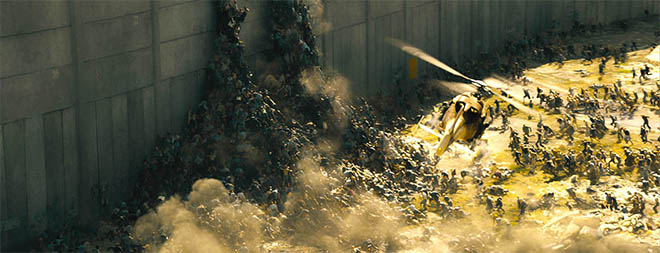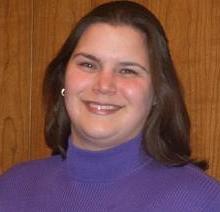David Hughes: Zombie Ant Expert and Science Consultant for "World War Z"

Paramount Pictures
When the producer of the film "World War Z," Jeremy Kleiner, typed the words "zombie ants" into Google's search box, he had no idea that he would find exactly what he was looking for.
David Hughes is a biologist at the Pennsylvania State University and an expert in the fungus Ophiocordyceps unilaterilis. The fungus is a parasite that infects its ant host and takes control of the insect's brain, creating what are affectionately named "zombie ants." The fungus ultimately kills the ant, grows out of the insect's exoskeleton and continues to spread its spores.
Hughes' expertise in zombie ants made him uniquely qualified to serve as a science consultant for the upcoming movie and a recently released, unrelated video game based on Hughes' research, called "The Last of Us."
In "World War Z," former United Nations investigator Gerry Lane (portrayed by Brad Pitt) crisscrosses the globe to try and stop a pandemic before it kills every human on earth.
"The book that the movie is based on is grounded in social and political ideas, so [the producers] had historical experts but they really wanted biological experts," said Hughes. "We talked a lot about parasites and what they do and what we might expect to see as a result of evolution."
Hughes explained that one way "World War Z" zombies are different than zombies seen in other films is that these zombies don't compete with each other. "If everyone was infected with the same virus, they would exhibit collective behavior," said Hughes. "Using the idea of swarm intelligence, the zombies would work together and overcome obstacles they could not alone, just as ants do."
Hughes also had the opportunity to work with screenwriter Matthew Michael Carnahan. "We spent quite a bit of time talking about if parasites choose their host and how do they choose," said Hughes. "In nature, parasites do discriminate; a female wasp can determine if a caterpillar is already infected and choose another host."
According to Hughes there is an example of this in the film. "You'll see swarm of zombies avoid a boy and audiences will find out why he wasn't a suitable host," said Hughes. "For example if someone has cancer, they wouldn't choose them; they don't infect someone with a terminal disease."
The experience also gave Hughes the chance to see how a movie is made. "It was fun to interact and see how many people are involved in making a film, but I didn't like the loss of magic," said Hughes. "As a consumer, it is beautiful to see how these stories are told and how writers weave real info into the story."
What excites Hughes the most about working on the movie and video game is the opportunity to communicate science to the public. "I have been able to bring biology and evolution to a different audience which leads to conversations." said Hughes. "People are generally good biologists because we observe it [the science of biology] from the cradle to the grave. So why not use Hollywood to get the message across?"

